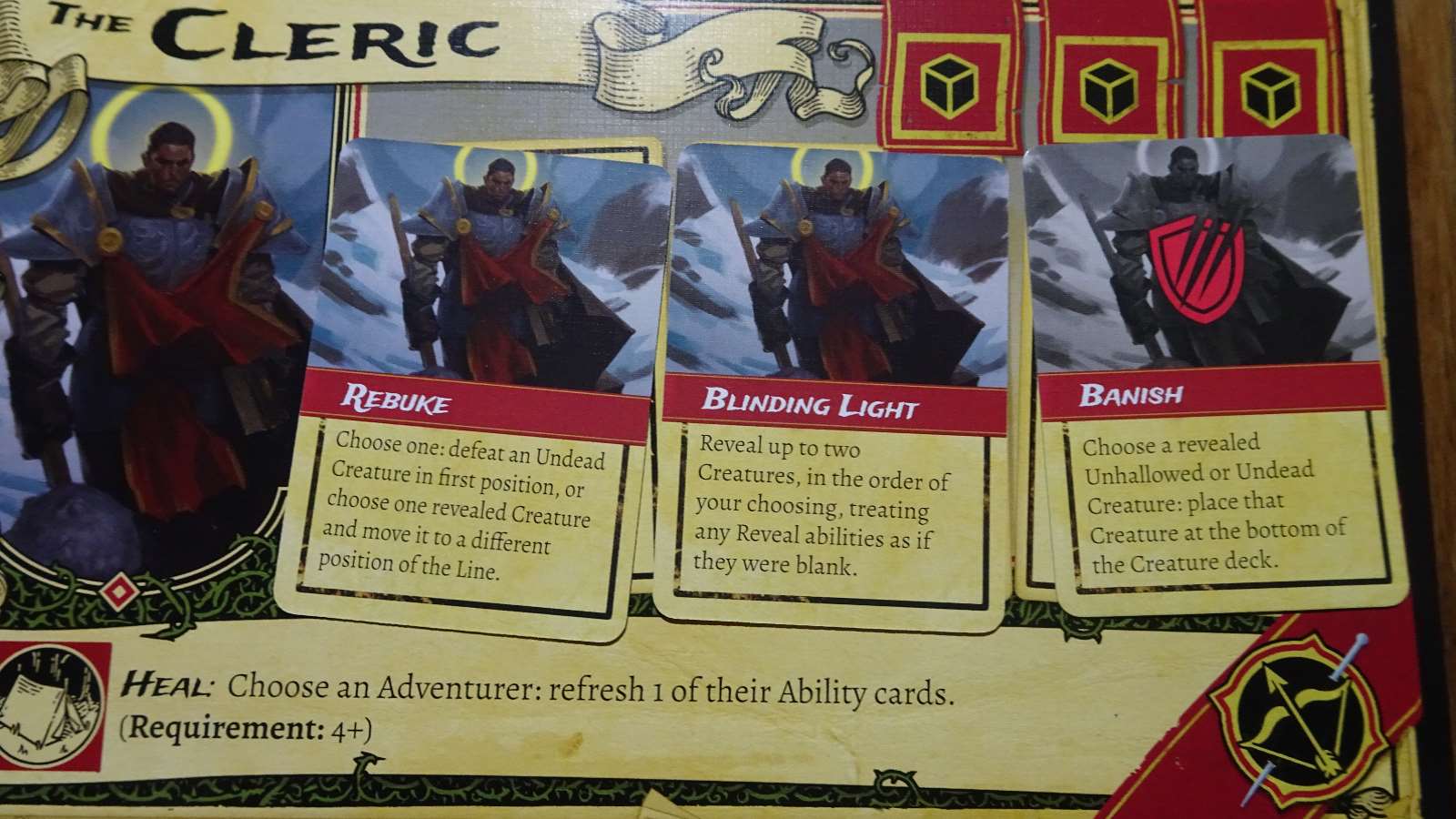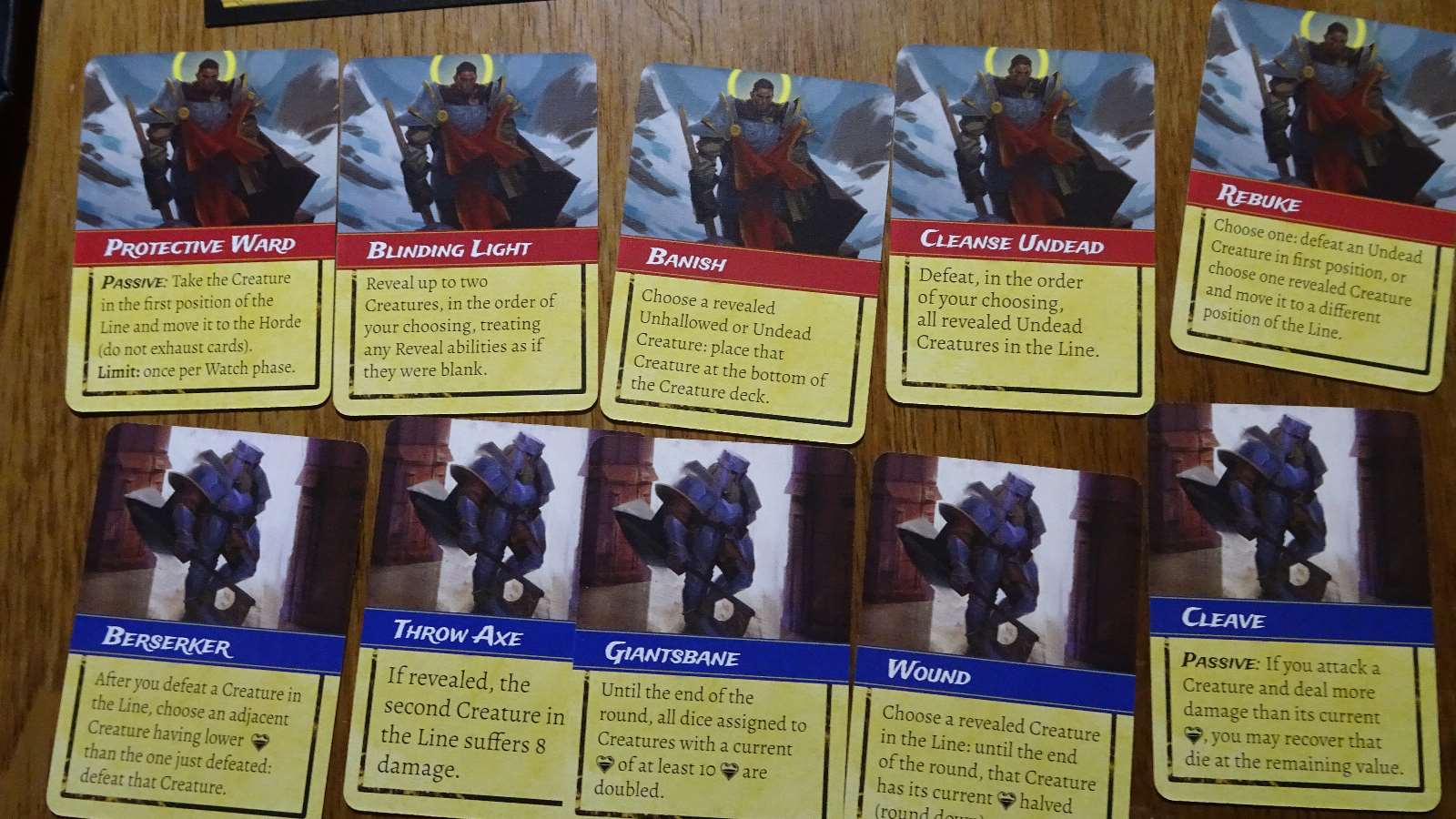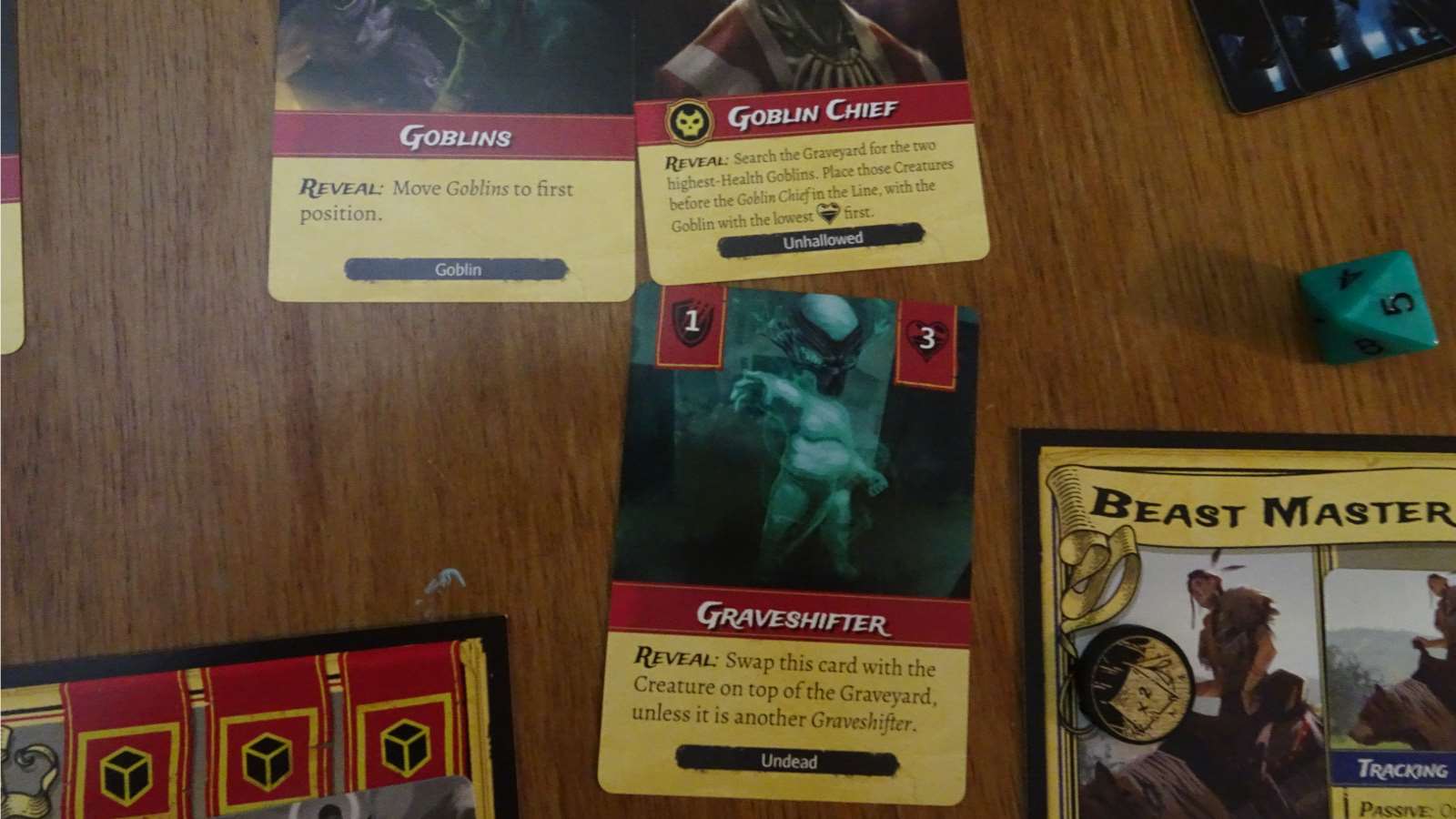Thematically, ‘Set A Watch’ sets the stage fairly well; after a day of adventuring, your party of adventurers survive against the darkness, battling against creatures while trying forestall the return of greater evils. One adventurer must tend to the fire each turn, which in turn ‘illuminates’ the first couple of creatures to fight. Each round the fire gets a little smaller, as darkness begins to encroach on our heroes.
Battling with four different adventurers, players roll their three dice, and from here must puzzle out how to defeat the enemy wave for the turn. Each turn, one player must rest at camp and can pick from different options such as seeing what enemies are coming up, or picking the next destination. The rest must use their 3 dice (for a total of 9) to battle anywhere from 6 to over 12 enemies that are coming to attack the camp. Combat is generally pretty easy to calculate, assign a dice that is equal or higher to the creature and it is dead. The problem comes from that many times the creatures are stronger, or activate different abilities that make each round a challenge.

There were many cool things about the game, such as the dark theme of trying to stop the evil from rising or the idea different of classes even if it doesn’t pan out as well as it seemed like it might have, but there are far too many issues that drag the game down. First of all, the rules border on atrocious. The actual game fundamentally isn’t that hard – once you figure it out – but even the company-hosted Youtube videos do not explain some very key instructions for setting up the deck among, not to mention timing. It is a type of game where you could explain to someone in a few minutes, but behind the scenes are complicated rules about where you must place cards in certain orders in certain decks. The rules outright glosses over or ignores some of these things – only references later on in the rules indicate that you were supposed to have done something.
Normally, a round plays out as a simple efficiency puzzle: how to best use the limited dice to battle the creatures. A player might have the following dice: 3,5,7, that they can combine with theirs or another player’s dice, such as putting their 3 and 7 together to take down a creature with 10 health. There are some special skills that can help turn the tide, but the game commits a sin that many players hate: cards as a health mechanic. Characters have three total cards, which are usable skills as well as their life. If they are exhausted all at once the game is over.

The largest issue present is the lack of balance between them. Each character has a ‘passive’ which generally blows their ‘usable’ skills out of the water, such as letting extra damage bleed through to next enemies; whereas the usable ones have a steep cost and are often not that good. An example might be moving an enemy to the end of the line or putting an enemy to sleep – in so many cases it is simply not worth ever using. First they are activated by using a very valuable dice, or exhausting it completely which is the same as taking damage. So a player might have a decision to exhaust one of their cards to use a skill that pushes an enemy into a different slot, but is now well on their way to being dead; not really much of a decision most of the time.
The game goes on for 9 rounds, which feels about 3-4 rounds too long. There is no ‘leveling up’ or any sort of power curve. Players just muddle along a little until they either get to the end, or die in random quick fashion. Lacking is the tension crucial to a survival game, nor is there any cool triumph of power as the heroes emerge leveled up and geared out for the final battle.
One of the many problems is the idea that having a bigger fire ‘should’ be good because you can see more enemies but often the fire works against you. Enemy reveal powers are very potent, and are the leading factor in quick spirals to game over. The more enemies the player can see, the more enemies trigger their reveal power. Player powers are reactive compared to proactive; so many times it is literally not in the players interest to have some many things revealed.

By far one of the most egregious problems of the game is the randomness and how quickly it can spell defeat. Your dice are subject to the whims of fate. Euro players are used to this, but usually with some option to modify your dice.. Either there is frequent or powerful dice mitigation, or any single roll cannot spell doom for the whole game. Imagine any long game with dice, like ‘Twilight Imperium’ or even ‘Risk’ and have an element where if you roll double sixes at any point you lose the game- this is similarly devastating. Typically, many enemy cards chain into each other, which as an aside is woefully unbalanced where a single card might be a weak 2-4 health enemy with no bonus, to a card that summons two others, and one of those summons another 2 more enemies. Oftentimes a single round is hard enough to clear with no damage, and a single enemy surviving can easily do at least two damage aka two cards knocked out of a player. When something like this triggers it truly can be single turn game overs which are incredibly frustrating. There is nothing fun, or ‘dang we should have tried this next time’, just random death and pain.
Overall the game lends itself very much to needing some house rules. The type of person that is going to enjoy this ‘as is’ is rare. It is really unfortunate, because there is a cool skeleton of a game in here. Some severe luck mitigation is needed, as well as letting characters feel powerful rather than just using their weak abilities as a few hit points. So many things conspire together to make the experience far less fun than I am sure it was meant to be.

















